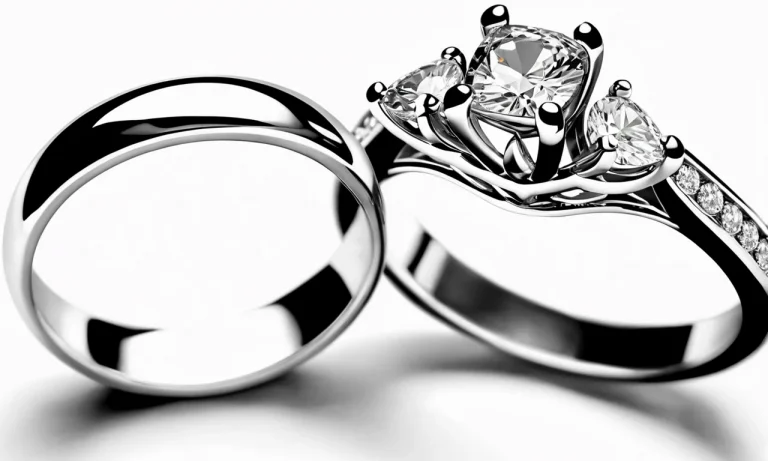Have you ever noticed a ringing or buzzing sound in your ears after having one too many drinks? Many people experience tinnitus—the medical term for ringing ears—as a result of alcohol consumption. If you’re wondering why this strange symptom occurs, you’re not alone.
In this comprehensive guide, we’ll explore the science behind why alcohol makes your ears ring, how long it lasts, when you should see a doctor, and prevention tips.
If you don’t have time to read the full article, here’s the quick answer: Alcohol causes tinnitus or ringing in the ears due to its effects on blood flow, nerve signals, and brain chemicals. It’s temporary in most cases.
Stay hydrated, avoid loud noise when drinking, and limit alcohol to prevent prolonged ringing.
How Does Alcohol Cause Tinnitus or Ringing Ears?
Many people have experienced the unpleasant sensation of ringing in their ears after consuming alcohol. This condition, known as tinnitus, can be temporary or chronic and is often accompanied by other symptoms such as dizziness or hearing loss.
While the exact mechanism behind alcohol-induced tinnitus is not fully understood, there are several theories that may explain why this occurs.
Interferes with Blood Flow
One possible explanation for alcohol-induced tinnitus is that alcohol interferes with blood flow in the inner ear. The inner ear is responsible for transmitting sound signals to the brain, and any disruption in blood flow can affect its proper functioning.
Alcohol is known to dilate blood vessels and reduce blood flow, which can lead to decreased oxygen supply to the inner ear. This lack of oxygen may cause the cells in the inner ear to become damaged or die, resulting in the sensation of ringing or other auditory disturbances.
Alters Nerve Signals
Another theory suggests that alcohol alters nerve signals in the auditory system, leading to tinnitus. Alcohol is a central nervous system depressant, meaning it slows down the transmission of signals between nerve cells.
This can interfere with the normal functioning of the auditory system, leading to the perception of abnormal sounds like ringing or buzzing. Additionally, alcohol can also affect the neurotransmitters responsible for transmitting signals in the brain, further contributing to the development of tinnitus.
Affects Brain Chemicals
Alcohol has been found to affect the levels of certain brain chemicals, such as serotonin and dopamine, which play a role in regulating mood and emotions. These chemicals also have an impact on the auditory system, and any imbalance in their levels can potentially lead to tinnitus.
Excessive alcohol consumption can disrupt the delicate balance of neurotransmitters in the brain, causing changes in the auditory system and ultimately resulting in the perception of ringing ears.
While these theories provide some insight into how alcohol may cause tinnitus, it is important to note that individual reactions to alcohol can vary. Some people may be more susceptible to developing tinnitus after drinking alcohol, while others may not experience any symptoms at all.
If you are concerned about the impact of alcohol on your hearing, it is advisable to consult with a healthcare professional for further evaluation and guidance.
Why Does Tinnitus from Drinking Last So Long?
Tinnitus, the perception of ringing or buzzing in the ears, can be a common side effect of consuming alcohol. Many individuals have experienced this phenomenon, wondering why it seems to persist long after the alcohol has left their system.
Several factors contribute to the prolonged duration of tinnitus after drinking.
Alcohol Stays in Your System for Hours
One reason for the lasting tinnitus is that alcohol remains in the body for several hours after consumption. The liver takes time to metabolize alcohol, and during this process, the alcohol and its byproducts can affect various bodily functions, including the auditory system.
This lingering presence of alcohol in the body can prolong the experience of tinnitus.
Increased Blood Flow After Effects
Another factor contributing to the prolonged tinnitus is the increased blood flow to the inner ear caused by alcohol consumption. Alcohol is a vasodilator, meaning it causes blood vessels to widen. This dilation leads to an increase in blood flow and pressure in the inner ear, which can result in tinnitus.
Even after the effects of alcohol have worn off, the increased blood flow may persist, causing the ringing or buzzing sensation to continue.
Stress and Fatigue
Drinking alcohol can often lead to a lack of quality sleep, which can cause stress and fatigue. These factors are known to exacerbate tinnitus symptoms and make them more noticeable. Additionally, alcohol can disrupt the delicate balance of neurotransmitters in the brain, further contributing to feelings of stress.
The combination of stress and fatigue can prolong the perception of tinnitus after drinking.
Interaction with Medications
It is important to consider any medications being taken while consuming alcohol. Some medications, when combined with alcohol, can increase the risk of experiencing tinnitus or worsen existing tinnitus symptoms.
If you are taking any medications, it is advisable to consult with a healthcare professional to determine if alcohol may interact negatively with your medication and contribute to prolonged tinnitus.
When to See a Doctor about Ringing Ears from Alcohol
Experiencing ringing ears after consuming alcohol is a common occurrence for many people. In most cases, this condition known as tinnitus is temporary and subsides on its own. However, there are certain situations where it is advisable to seek medical attention.
If you are experiencing any of the following, it is recommended to consult a doctor:
Tinnitus Lasts More than 1-2 Days
If the ringing in your ears persists for more than a day or two after consuming alcohol, it could be a sign of a more serious underlying issue. While temporary tinnitus is often harmless and can be caused by the direct effect of alcohol on the inner ear, prolonged symptoms may indicate the need for further investigation.
Additional Hearing Loss Symptoms
If your tinnitus is accompanied by other symptoms such as dizziness, vertigo, or a gradual deterioration of hearing, it is crucial to consult a healthcare professional. These additional symptoms may suggest a more significant problem, such as damage to the auditory system or an underlying medical condition.
Underlying Medical Conditions
In some cases, tinnitus can be a symptom of an underlying medical condition that may require treatment. Conditions such as Meniere’s disease, ear infections, or even high blood pressure can cause tinnitus.
If you have a known medical condition or suspect that you may have one, it is important to discuss your symptoms with a healthcare provider.
While occasional ringing in the ears after consuming alcohol is generally harmless, it is essential to be aware of any persistent or worsening symptoms. Seeking medical advice in these cases can help identify any underlying issues and provide appropriate treatment if necessary.
Tips to Prevent Tinnitus from Alcohol Consumption
Stay Hydrated While Drinking
One of the main reasons why alcohol can cause tinnitus, or ringing in the ears, is because it dehydrates the body. When you consume alcohol, it acts as a diuretic, causing you to urinate more frequently and lose fluids. Dehydration can affect the inner ear, leading to tinnitus.
To prevent this, make sure to drink plenty of water while consuming alcohol. Staying hydrated can help minimize the risk of tinnitus and its associated symptoms.
Avoid Loud Noises in Bars/Clubs
In addition to alcohol-induced dehydration, exposure to loud noises can also contribute to tinnitus. When you combine alcohol consumption with loud music or noisy environments, the risk of developing tinnitus increases.
To protect your ears, try to avoid spending prolonged periods in noisy bars or clubs. If you do find yourself in such environments, consider wearing earplugs to reduce the impact of loud noises on your hearing.
Take Breaks from Drinking Alcohol
Regularly taking breaks from drinking alcohol can help reduce the likelihood of experiencing tinnitus. By giving your body time to recover, you allow it to replenish its fluids and minimize the impact of alcohol on your inner ear.
Consider having alcohol-free days throughout the week or spacing out your alcohol consumption to give your body a chance to recover.
Limit Daily Alcohol Intake
Excessive alcohol consumption can have a detrimental effect on your overall health, including your hearing. To prevent tinnitus and other alcohol-related complications, it’s important to limit your daily alcohol intake.
The Centers for Disease Control and Prevention (CDC) recommends that men consume no more than two standard drinks per day, while women should limit their alcohol intake to one standard drink per day. By adhering to these guidelines, you can reduce the risk of developing tinnitus.
Consider Nutritional Supplements
Some studies suggest that certain nutritional supplements may help protect against tinnitus. For example, antioxidants like vitamin C and E have been found to have a positive impact on preventing or reducing tinnitus symptoms.
Additionally, magnesium supplements may also be beneficial in managing tinnitus. However, it’s important to consult with a healthcare professional before starting any new supplements to ensure they are safe and appropriate for your individual needs.
By following these tips, you can minimize the risk of experiencing tinnitus when consuming alcohol. Remember to stay hydrated, avoid loud noises, take breaks from drinking, limit your alcohol intake, and consider incorporating nutritional supplements if appropriate.
Taking care of your hearing health is essential for overall well-being.
Conclusion
In summary, alcohol commonly causes temporary tinnitus or ringing in the ears through its effects on blood flow, nerve signals, and brain chemicals. Ringing can persist for up to a couple days after drinking due to alcohol remaining in your system and its after effects.
See a doctor if ringing lasts more than a day or two or you have other hearing changes. Staying hydrated, limiting alcohol intake, and avoiding loud noises when drinking can help prevent tinnitus from occurring.
We hope this comprehensive guide provided you with a thorough understanding of why alcohol causes ringing ears. While tinnitus from drinking is typically short-lived, take precautions to minimize your risk.
Pay attention to any ear changes after drinking and see an audiologist or ENT doctor if symptoms persist.






